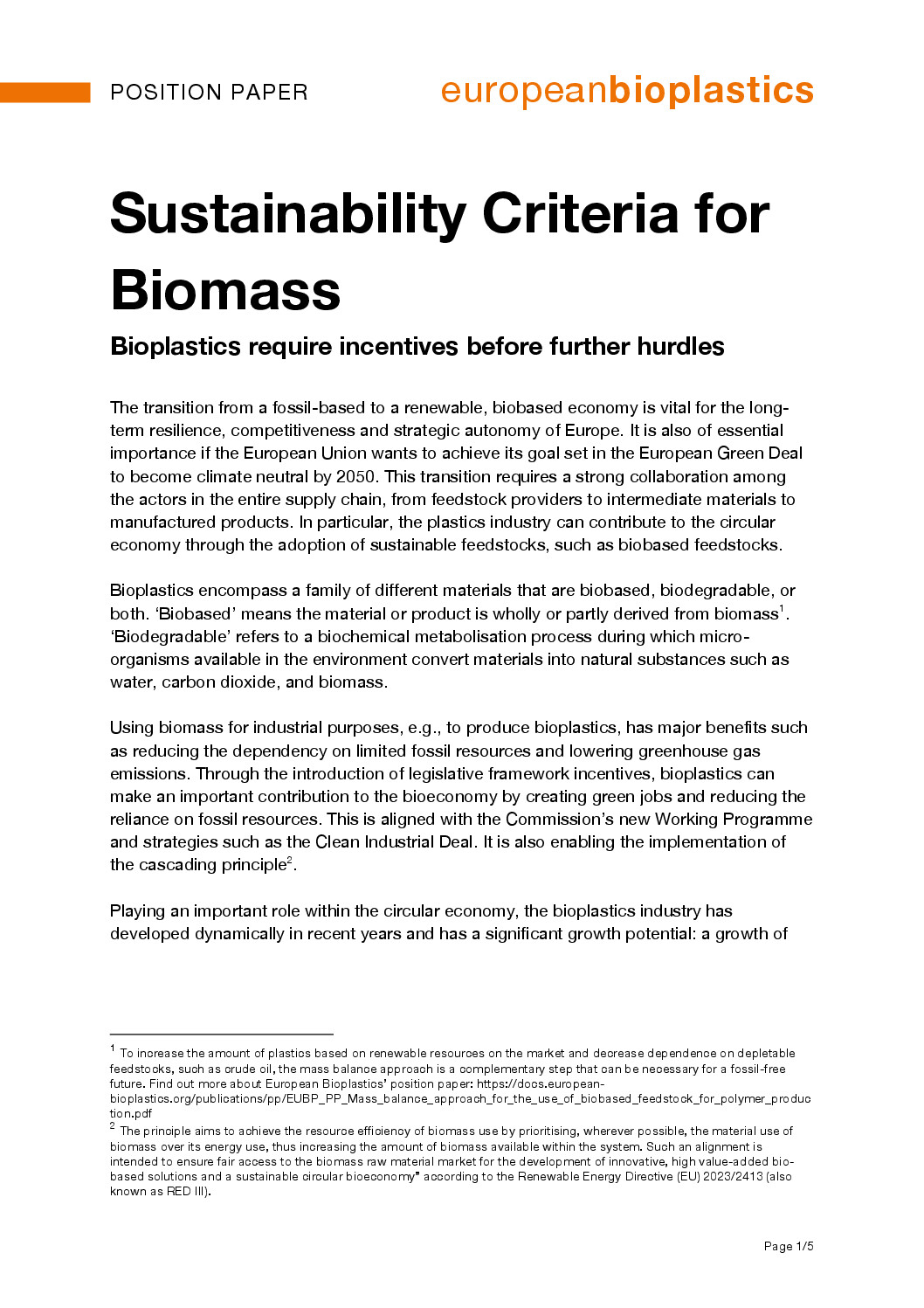The transition from a fossil-based to a renewable, biobased economy is vital for the long-term resilience, competitiveness and strategic autonomy of Europe. It is also of essential importance if the European Union wants to achieve its goal set in the European Green Deal to become climate neutral by 2050. This transition requires a strong collaboration among the actors in the entire supply chain, from feedstock providers to intermediate materials to manufactured products. In particular, the plastics industry can contribute to the circular economy through the adoption of sustainable feedstocks, such as biobased feedstocks.
Bioplastics encompass a family of different materials that are biobased, biodegradable, or both. ‘Biobased’ means the material or product is wholly or partly derived from biomass (1). ‘Biodegradable’ refers to a biochemical metabolisation process during which micro-organisms available in the environment convert materials into natural substances such as water, carbon dioxide, and biomass.
Using biomass for industrial purposes, e.g., to produce bioplastics, has major benefits such as reducing the dependency on limited fossil resources and lowering greenhouse gas emissions. Through the introduction of legislative framework incentives, bioplastics can make an important contribution to the bioeconomy by creating green jobs and reducing the reliance on fossil resources. This is aligned with the Commission’s new Working Programme and strategies such as the Clean Industrial Deal. It is also enabling the implementation of the cascading principle (2).
Playing an important role within the circular economy, the bioplastics industry has developed dynamically in recent years and has a significant growth potential: a growth of over 130% is forecasted in global bioplastics production capacity between 2024 and 2029(3). Maintained access to sustainably grown biomass is essential to guarantee this growth.
EUBP acknowledges that the initial effort of implementing sustainability criteria for the use of biomass for material production will inherently need to be carried out by the farmers and other biobased feedstock providers. We believe therefore that it is extremely important that the perspective of the farmers and the whole value chain is considered in the decision-making process.
